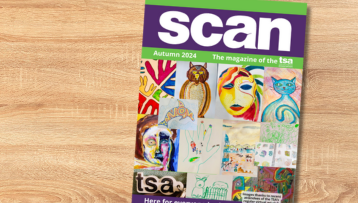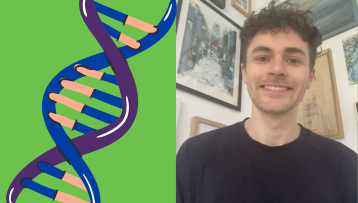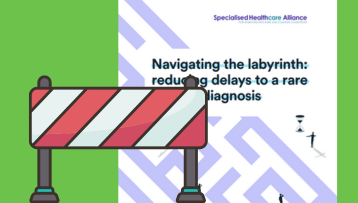The latest work of Dr. Kacper Rogala (Postdoctoral Fellow, Whitehead Institute, United States) and his team into the mechanisms of TSC cells was recently published in the research journal science.
The Tuberous Sclerosis Association (TSA) proudly funds Dr Rogala’s research and is pleased to provide a summary of his team’s latest findings:
Cells in the body can change in size, with different parts of the cell deciding if the cell should grow or stay the same size. The parts of the cell that control cell size are grouped under something called the ‘mTORC1 pathway’, which includes parts of the cell linked to TSC.

If there’s lots of food around, mTORC1 lets the cell grow, but if food is in short supply, mTORC1 tells the cell to recycle the food it already has, which means that it can’t grow any bigger. In people living with TSC, the mTORC1 pathway can’t tell the cell to stop growing, which can cause the cells to grow uncontrollably and the development of tumours.
Researchers want to look at ways to stop mTORC1 from telling the cell to grow. For a cell to grow, mTORC1 must attach itself to things called ‘Lysosomes’, which act as the stomach of cells and break down food and other things in the cell that are broken. mTORC1 can only attach to lysosomes when there’s lots of food around for the cell.
Dr Rogala and his team have been able to take a detailed 3D picture of what mTORC1 looks like when it is attached to lysosomes and trying to grow. As mTORC1 is very small – about 1 millionth of a millimetre – the image had to be taken with a special microscope. This image allows researchers to look at the important parts of mTORC1 that allow it to land on the lysosome and to study the chemistry of how this happens.
It is hoped that the images can help us to better understand how to stop mTORC1 from attaching to lysosomes. If we have better knowledge of this, we may be able to stop the cells from having the opportunity to grow, which could stop tumours from developing. In turn, this could then lead to new and more specific treatments for people living with TSC to help prevent tumour growths. At the moment, the medicine rapamycin is able to stop cell growth, but the treatment can have a lot of unwanted side effects.
The TSA will be closely following the progress of Dr Rogala and his team, updating the TSC community once updates are received.
Make a one off or regular donation
£10 Can allow us to send a welcome pack to a family who has just received a life-changing TSC diagnosis, ensuring that they do not go through this time alone.
£25 Can help us develop materials that are included in our support services, flagship events or campaigns.
£50 Can provide laboratory equipment for a day’s research into the causes, symptoms, management or treatment of TSC.
To provide help for today and a cure for tomorrow



























































































































